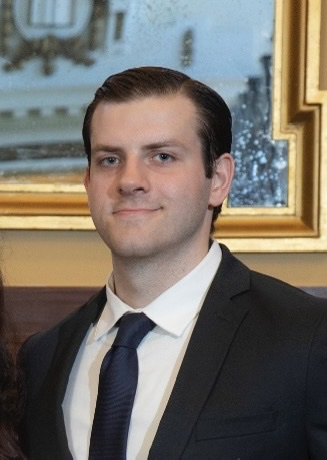Brian Kemple | Executive Editor

Brian Kemple received his Doctorate in Philosophy from the University of St. Thomas, TX in 2016. Since then, he has written two scholarly monographs (Ens Primum Cognitum in Thomas Aquinas and the Tradition, and The Intersection of Semiotics and Phenomenology: Peirce and Heidegger in Dialogue) as well as an Introduction to Philosophical Principles and Linguistic Signification: A Classical and Semiotic Course in Grammar & Composition. He is the author of many articles, both scholarly and popular, and after teaching for several years at the college level, as well as privately consulting (cp-insight.com), Dr. Kemple founded the Lyceum Institute, where he currently serves as Executive Director. Dr. Kemple’s work focuses on theories of knowledge, semiotics, and metaphysics.
John H. Boyer | Editor

John H. Boyer is a Doctoral candidate in Philosophy at the University of St. Thomas, where he has also taught philosophy since 2013. His dissertation develops an Aristotelian theory of scientific explanation based on the role of the four causes in scientific inquiry. Mr. Boyer’s research focuses primarily on neo-Aristotelian philosophy of science and philosophy of nature.
Danny O’Malley | Editor

Danny O’Malley received his BA in political science from Davidson College in 2019 and subsequently earned his Juris Doctor from the University of Missouri-Kansas City School of Law in 2022, where he served as Editor-in-Chief of the UMKC Law Review. Currently, he is a business transactions attorney for a large law firm in the Kansas City area. In 2023, his article “A Thomistic Argument against the Simulation Hypothesis: An Application of the Doctrine of Signs in John Poinsot” was published by Reality. His research focuses primarily on metaphysics, semiotics, and theories of knowledge.
Francisco E. Plaza | Editor

Francisco E. Plaza received his Doctorate in Philosophy from the University of St. Thomas, TX in 2021. His dissertation work centered on Jacques Maritain’s philosophy of culture, and how it applies to contemporary political concerns. He has also written several other works on Maritain’s philosophy. For instance, in 2019, his article “Maritain’s Philosophy of Culture: A Bridge between Metaphysics and Politics” was published by the American Maritain Association in “In Search for Harmony.” Also, in 2017, his article “Subjectivity and the Prise de Conscience in Jacques Maritain” was published by the American Maritain Association in “Engaging the Times.” Dr. Plaza focuses primarily on political theory, ethics, and Catholic culture.
Daniel C. Wagner | Editor

Daniel C. Wagner is Associate Professor and Chair of Philosophy, and the Director of Catholic Studies at Aquinas College, in Grand Rapids, MI. He received his Doctorate in Philosophy from the University of St. Thomas, TX, in 2018 (Dissertation: φύσις καί τὸ ἀνθρώπινον ἀγαθὸν: The Aristotelian Foundations of the Human Good). His research focuses on the Philosophy of Nature and Science, Philosophical Anthropology, and Ethics in Aristotle and St. Thomas Aquinas (see, e.g., “Plato and Aristotle on the Good and the Beautiful (τό καλόν/to kalon) as Nature (φύσις): The Foundations of Thomistic Ethics & Aesthetics,” in the 2022 American Maritain Association Volume, and “Disputatio on the Distinction between the Human Person and Other Animals: The Human Person as Gardener,” Co-authored with Sr. Damien Marie, FSE, in Studia Gilsoniana), and on the synthetic development of Aristotelian and Thomistic philosophy with Phenomenology (see, e.g., “On Karol Wojtyła’s Aristotelian Method: Part I: Aristotelian Induction (ἐπαγωγή) and Division (διαίρεσις),” in Philosophy and Canon Law, “Penitential Method as Phenomenological: The Penitential ἐποχή,” and “On the Foundational Compatibility of Phenomenology & Thomism,” in Studia Gilsoniana). With John P. Hittinger and Michael W. Tkacz, he co-edited The Intelligibility of Nature: The Wallace Reader (CUA Press, 2023), and With John P. Hittinger, he co-edited Thomas Aquinas: Teacher of Humanity (Cambridge Scholars Publishing, 2015).
You must be logged in to post a comment.